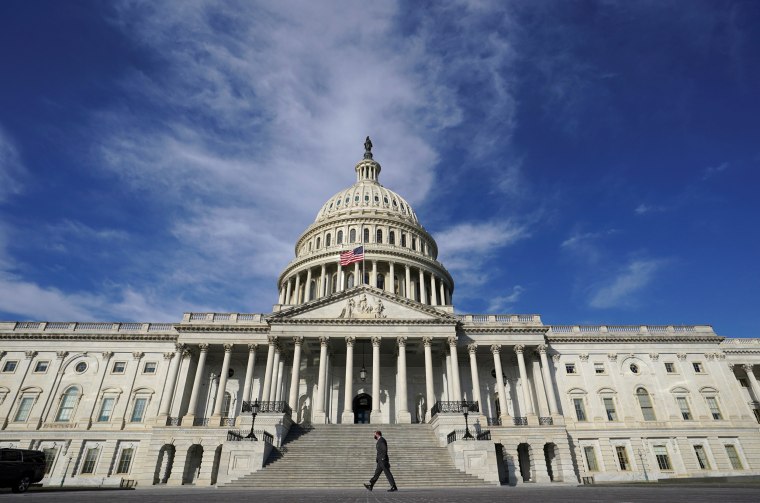By all appearances, the Democrats' COVID relief package is still on track to pass, though nothing about the process is easy. In fact, over the last few days, some moderate and conservative Senate Dems pushed to weaken the legislation a bit, lowering supplemental unemployment benefits and limiting the number of Americans who'll benefit from direct-aid checks.
Yesterday, President Joe Biden negotiated an agreement: unemployment aid would remain intact, but fewer Americans will be eligible for $1,400 checks. NBC News reported:
Every American who filed individually and makes up to $75,000 would still get the full amount before it begins to reduce at incomes above that. But rather than zero out at $100,000 earnings, as the last Covid-19 relief bill does, the Senate bill would cut off payments at $80,000, the sources said. For couples filing jointly, incomes up to $150,000 would still get the full amount. But rather than zero out at $200,000, the Senate bill would cut off payments at $160,000 in earnings. For taxpayers filing as heads of households, the new plan would make the full $1,400 available for those earning under $112,500, with the payment zeroing out at $120,000.
By some accounts, this change will save about $12 billion in the $1.9 trillion package. Or put another way, the price of the COVID relief package has now been reduced by less than 1%.
Eric Levitz added, "One reason the Democratic leadership decided to cave to moderates on checks was that they wanted to make sure that the Senate Finance Committee's appropriations remain under its assigned limit once the Congressional Budget Office scores the bill. Twelve billion dollars isn't much in the context of the entire bill, but could be enough to keep the Finance Committee's section under its ceiling."
For those who consider such wrangling exasperating, the fact remains that the legislative process itself is every bit as frustrating as these odd policy negotiations.
For example, the Senate was scheduled to begin work on the proposal yesterday, but the start date was delayed a day because the budget reconciliation process -- needed to circumvent a Republican filibuster -- requires senators to get an assessment from the Congressional Budget Office and the Joint Committee on Taxation before proceeding.
The "score" from the CBO and JCT wasn't ready, so Democratic leaders had to wait.
Making matters just a bit worse, some Republicans are eager to play dumb games.
Sen. Ron Johnson's threat to force a reading of the entire bill could delay the process even further. Senators normally forgo the reading out loud of the entire bill, but Johnson said he would lodge an objection and force the nearly 700-page bill to be read out loud, a process he said could take over ten hours.
Eventually, after the bill is read out loud for no reason, there will be 20 hours of debate, culminating in an other annoying exercise known as a "vote-a-rama." (I explained what that is last month.)
A final vote is now expected sometime over the weekend.
Postscript: Just as an aside, I'm reminded of a 2009 story in which a Democratic committee chairman literally hired a speed-reader after Republicans threatened to delay the legislative process by having the bill read aloud. As best as I can tell, that won't be an option for the Senate today.
